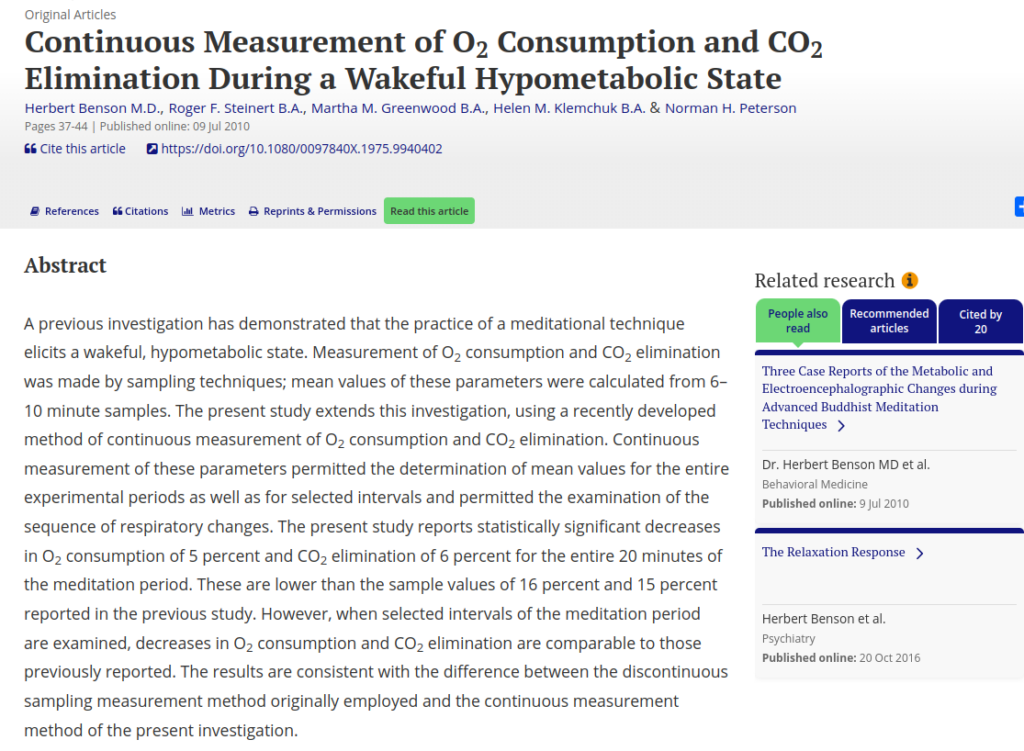A previous investigation has demonstrated that the practice of a meditational technique elicits a wakeful, hypometabolic state. Measurement of O2 consumption and CO2 elimination was made by sampling techniques; mean values of these parameters were calculated from 6–10 minute samples. The present study extends this investigation, using a recently developed method of continuous measurement of O2 consumption and CO2 elimination. Continuous measurement of these parameters permitted the determination of mean values for the entire experimental periods as well as for selected intervals and permitted the examination of the sequence of respiratory changes. The present study reports statistically significant decreases in O2 consumption of 5 percent and CO2 elimination of 6 percent for the entire 20 minutes of the meditation period. These are lower than the sample values of 16 percent and 15 percent reported in the previous study. However, when selected intervals of the meditation period are examined, decreases in O2 consumption and CO2 elimination are comparable to those previously reported. The results are consistent with the difference between the discontinuous sampling measurement method originally employed and the continuous measurement method of the present investigation.
Continuous Measurement of O2 Consumption and CO2 Elimination During a Wakeful Hypometabolic State
Publication
Journal of Human Stress / Behavioral Medicine
Volume 1(1)
Abstract
Web and Email Links
Related Listings
Journal
Behaviour Research Therapy
Ten of thirteen original participants with Irritable Bowel Syndrome (IBS) participated in a one year follow-up study to determine whether the effects of Relaxation Response Meditation (RRM) on IBS symptom reduction were maintained over the long-term. From pre-treatment to one-year follow-up, significant reductions were noted for the symptoms of abdominal pain (p=0.017), diarrhea (p=0.045), flatulence (p=0.030), and bloating (p=0.018). When we examined changes from the original three m […]
Journal
Behavioral Medicine
To examine the extent to which advanced meditative practices might alter body metabolism and the electroencephalogram (EEG), we investigated three Tibetan Buddhist monks living in the Rumtek monastery in Sikkim, India. In a study carried out in February 1988, we found that during the practice of several different meditative practices, resting metabolism ([Vdot]O2) could be both raised (up to 61%) and lowered (down to 64%). The reduction from rest is the largest ever reported. On the […]
Journal
Psychotherapy and Psychosomatics
The effect of a 10-week meditation program on 20 patients who were undergoing long-term individual explorative psychotherapy was studied. Change in the psychological well-being of the patients and the impact of the program on the process of their psychotherapy was evaluated. Results obtained from the patients’ self-ratings and the therapists’ objective ratings demonstrated a significant and substantial improvement in most measures of psychological well-being.

